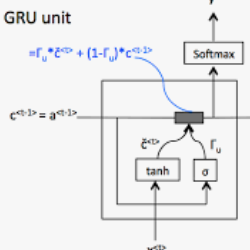Earth electromagnetic exploration satellites are widely used in many fields due to their wide detection range and high detection sensitivity. The complex environment and the proliferating number of satellites make management a primary issue. We propose a learning adaptive genetic algorithm (LAGA) for the earth electromagnetic satellite scheduling problem (EESSP). Control parameters are vital for evolutionary algorithms, and their sensitivity to the problem makes tuning parameters usually require a lot of effort. In the LAGA, we use a GRU artificial neural network model to control the parameters of variation operators. The GRU model can utilize online information to achieve adaptive adjustment of the parameters during population search. Moreover, a policy gradient-based reinforcement learning method is designed to update the GRU network parameters. By using an adaptive evolution mechanism in the algorithm, the LAGA can autonomously select crossover operators. Furthermore, a heuristic initialization method, an elite strategy, and a local search method are adopted in the LAGA to enhance the overall performance. The proposed algorithm can obtain a more optimal solution on the EESSP through sufficient experimental validations compared to the state-of-the-art algorithms.
翻译:地球电磁探测卫星由于探测范围广,探测敏感度高,在许多领域广泛使用。复杂的环境和卫星数量激增,使管理成为主要问题。我们提议对地球电磁卫星时间安排问题采用学习的适应性遗传算法(LAGA),控制参数对于演化算法至关重要,对问题的敏感度使调控参数通常需要大量努力。在LAGA,我们使用GRU人工神经网络模型来控制变异操作员的参数。GRU模型可以利用在线信息在人口搜索期间对参数进行适应性调整。此外,还设计了基于政策梯度的强化学习方法来更新GRU网络参数。通过在算法中使用适应性进化进化机制,LAGA可以自主选择交叉操作者。此外,LAGAGA采用了超度初始化方法、精英战略和本地搜索方法,以提高总体性能。拟议的算法可以通过与最新算法相比的充分实验性验证,在EESP上获得更优化的解决方案。




